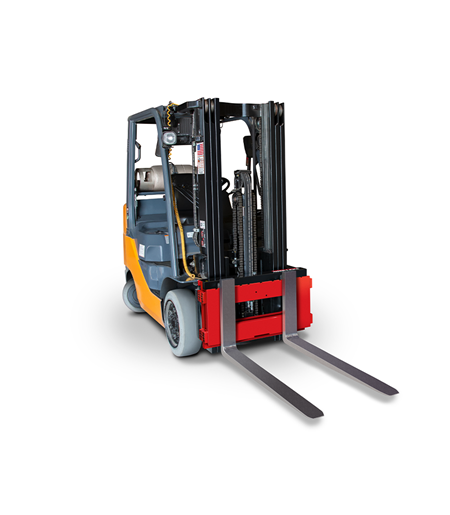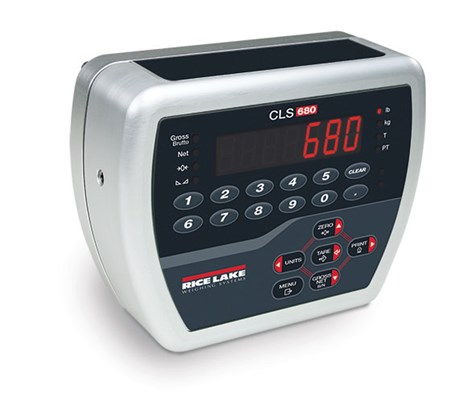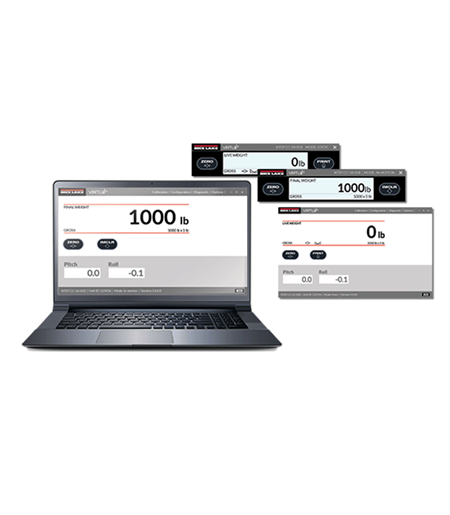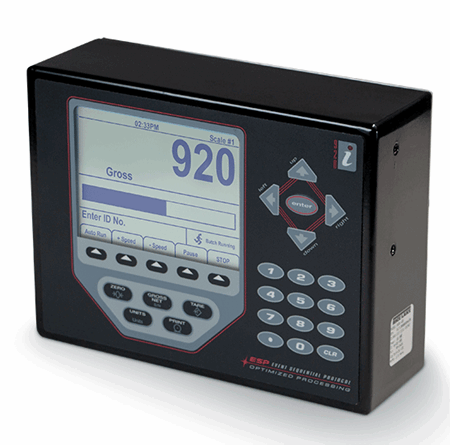Is the website displaying in the correct language? Please confirm or select a different language.
Your region has been set automatically. Please confirm or select a different region.
A Guide to Buying a Forklift Scale
Forklift scales can dramatically increase efficiency and throughput during the material handling process. However, there are many items that must be considered before a scale can be installed on your forklift.
What to Consider When Purchasing a Forklift Scale
Forklift scales are highly compatible with counterbalance forklifts, one of the most common types of forklifts in industrial environments. If you have something other than a counterbalance forklift, such as a reach forklift, your local scale distributor will help you determine what type of scale attachment might be available. Your distributor will need the carriage class type and profile to help determine scale compatibility.
Additional Scale Elements to Discuss with Your Distributor
Check attachment and mounting plate compatibility. Ensure the forks can be removed from the forklift carriage. If an attachment needs to be re-installed on the scale, your scale distributor will confirm the mounting features of the attachment will fit on the front of the forklift scale.
Eliminate interference from the load backrest. If a load backrest extension is attached, your distributor will ensure the overall width does not create mechanical interference with the scale. If interference exists, the load backrest may need to be removed or modified. If you choose a wireless display option, your distributor will also verify you have access to change the batteries.
Identify the instrumentation power supply. Many gas-powered forklifts operate on standard 12-volt batteries, while electric vehicle batteries range from 24 to 60 volts. Forklifts operating on electric batteries are prone to static, so you will need to discuss a static prevention method for the forklift with your distributor.
Forklift Operations
It is important to know how you intend to use your forklift scale and how it will affect your operations. During the consultation, your distributor will help you consider operation conditions, review peripheral equipment locations and determine functions of the scale.
Consider how a scale attachment will affect operations. The addition of a forklift scale will cause the forks to protrude an additional four to five inches. Make sure your operators can accommodate this additional length in their day-to-day use of the forklifts.
Consider the environment of operations. When determining how you intend to use your scale, ensure your scale distributor is aware of any exposure to static, washdown or other harsh conditions.
Review peripheral locations. Your distributor will review the mounting locations of the indicator and other peripherals to ensure they are within easy view but do not hinder safe visibility. Your distributor will help you determine if other items need to be mounted, such as printers or bar code readers.
Determine what happens with the captured weight. Your distributor will help you determine what functions the forklift scale needs to perform. Before consultation, determine if you intend to weigh only for printout or if you are looking for weight to be accumulated or communicated elsewhere.
Post Installation
After installation, the forklift will need de-rating and maintenance.
De-rate the forklift. The de-rating tag may be an OSHA requirement and you must contact your forklift seller with a request for a new data tag.
Maintenance. After your forklift scale is installed, your scale distributor will go through daily and weekly maintenance for you to implement, which will help ensure accurate weighing and performance. This includes:
- Ensuring the centering pin is fully seated
- Checking for proper gaps on bottom cleats
- Checking for debris within the scale and between the forklift load apron and scale back plate
- Applying grease and cleaning the forklift while being cautious of the electronic components
By understanding your forklift’s compatibility and how usage impacts scale attachments, your scale distributor can ensure your forklift scale needs are met. Rice Lake Weighing Systems offers Legal for Trade forklift scales with a variety of indicator options to choose from, in addition to scale support from industry experts.



 My Account
My Account



